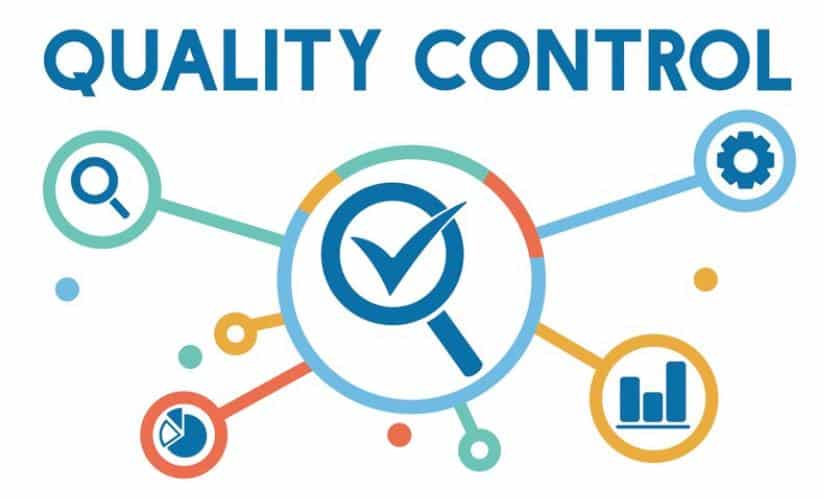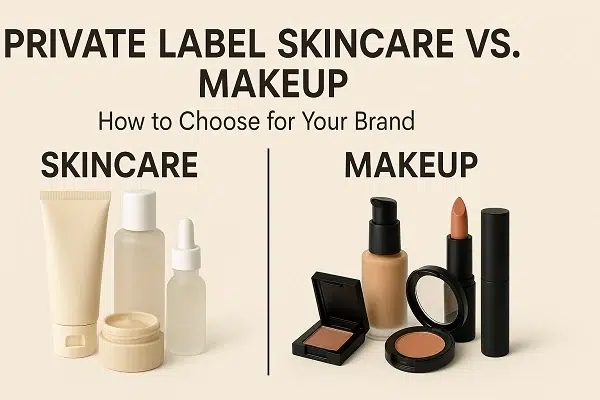Private label cosmetics refer to beauty and skincare products manufactured by one company and sold under another brand’s name, allowing businesses to personalize products without direct involvement in production.
Entrepreneurship in the cosmetics industry thrives on innovation, diverse trends, and fierce market competition, fostering creativity and brand differentiation.
Private label cosmetics offer entrepreneurs autonomy by allowing customization, branding, and control over production, empowering them to create distinct, market-ready beauty products independently, fostering entrepreneurial independence.
Table of Contents
Benefits of Private Labeling in the Cosmetics Sector
Flexibility in Branding and Product Customization
Private labeling in cosmetics offers flexibility in branding and product customization by allowing companies to personalize products, create unique packaging, and tailor formulations to meet specific market demands, ensuring a distinct brand identity and adaptability to trends.

Customization Options: Private labeling allows companies to personalize products according to their target audience’s preferences. This includes selecting specific ingredients, formulations, scents, colors, and packaging designs that resonate with their brand identity and cater to the needs of their customers.
Brand Control: With private labeling, companies have greater control over branding elements such as labeling, logos, and packaging. They can create a unique brand image and story, reinforcing brand loyalty among consumers.
Adaptability to Trends: Cosmetic trends evolve rapidly. Private labeling enables brands to swiftly adapt to these trends by introducing new products or modifying existing ones, keeping their offerings aligned with the latest market demands.
Market Segmentation: Brands can use private labeling to target different market segments. For instance, they can create specialized lines for different skin types, age groups, or beauty concerns, thereby expanding their customer base.
Exclusive Offerings: Through customization, companies can produce exclusive or limited-edition products, fostering a sense of exclusivity and urgency among consumers, which can drive sales.
Building Partnerships: Private labeling allows companies to collaborate with retailers or other businesses, creating custom products specifically tailored to the partnering entity’s requirements. This can lead to new market opportunities and increased brand exposure.
Lower Costs and Reduced Time-to-Market
Lower costs and reduced time-to-market in private labeling are a result of streamlined processes, leveraging existing formulations, efficient supply chains, and the ability to swiftly respond to market needs, enabling brands to introduce products faster and more cost-effectively than creating entirely new formulations or brands from scratch.

Reduced Research and Development (R&D) Expenses: Private label cosmetics often utilize existing formulations or readily available base products. This minimizes the need for extensive research and development, reducing associated costs and time.
Economies of Scale: Private label manufacturers typically produce products in larger quantities, benefiting from economies of scale in manufacturing. Bulk production often leads to lower per-unit production costs.
Elimination of Product Development Phases: With private labeling, brands bypass certain stages of product development, such as formulating new products from scratch or investing in unique packaging designs. This streamlines the process, saving time and costs.
Faster Production Lead Times: Private label manufacturers often have established processes and infrastructure in place, enabling quicker turnaround times for product manufacturing. This rapid production cycle decreases time-to-market significantly.
Minimized Marketing Expenditure: As private label products are often marketed under the retailer’s or brand owner’s name, the burden of extensive marketing campaigns and brand building typically falls on the retailer, reducing marketing costs for the manufacturer.
Efficient Supply Chain Management: Private label cosmetics benefit from streamlined supply chains. Manufacturers can efficiently procure standardized raw materials, reducing lead times and costs associated with sourcing.
Retailer Responsiveness: Private label allows retailers to respond swiftly to market demands or trends. They can introduce new products or modify existing ones quickly, gaining a competitive edge and reducing time-to-market.
Control Over Production and Quality
The control over production and quality in private labeling empowers cosmetic brands to uphold stringent standards, ensure product quality and safety, build consumer trust, and maintain a competitive edge in the market.

Quality Assurance: Brands have direct oversight and control over the entire production process, from sourcing raw materials to manufacturing and packaging. This control allows for strict adherence to quality standards and consistency in product formulations.
Customized Formulations: Private label brands have the freedom to tailor cosmetic formulations according to their specific requirements, ensuring that products meet stringent quality benchmarks and contain desired ingredients.
Supplier Selection: Companies have the autonomy to choose reliable and reputable suppliers for raw materials, ensuring the quality and authenticity of ingredients used in their products. This selection process directly impacts the final product’s quality.
Compliance and Testing: Brands can conduct thorough testing and quality checks at various production stages, ensuring that products meet safety, efficacy, and regulatory standards before reaching the market.
Brand Reputation: Maintaining control over production processes enables brands to consistently deliver high-quality products, establishing and upholding their reputation for reliability, safety, and excellence among consumers.
Response to Feedback: Direct oversight of production allows brands to swiftly respond to customer feedback or market demands by making necessary adjustments to product formulations or manufacturing processes to improve quality.
Risk Mitigation: Control over production significantly reduces the risks of inconsistencies, defects, or issues in the final products, thereby minimizing the likelihood of recalls or negative consumer experiences.
Being Your Own Boss
Numerous entrepreneurial opportunities exist that require minimal capital to start, such as service-based businesses, freelancing, online businesses, and certain types of consulting. Leveraging skills, creativity, networking, and utilizing low-cost marketing strategies can significantly reduce initial expenses.

Additionally, exploring industries with lower entry barriers or opting for business models that allow gradual scaling can be effective ways to start a business with limited investment. Private label cosmetics is one of the ideal choice to be your own boss.
Creative Freedom and Brand Vision
Being your own boss grants you the creative freedom to shape and mold your brand according to your vision, enabling you to innovate, differentiate, and create a brand identity that stands out in the market.
Unrestricted Creativity: As your own boss, you have the freedom to express your creativity without limitations imposed by others. You can innovate, experiment, and create products or services aligned with your unique vision and ideas.
Brand Identity Development: You can shape and develop your brand’s identity according to your vision. This includes establishing brand values, defining the brand’s personality, and creating a distinct brand image that resonates with your target audience.
Flexible Decision-Making: Being the decision-maker allows you to implement your creative ideas without seeking approval from higher authorities. You have the autonomy to make swift and innovative decisions that align with your brand’s vision.
Adapting to Market Trends: You can quickly adapt to changing market trends and consumer preferences. This agility enables you to adjust your brand’s direction, introduce new products, or modify existing ones in response to market demands, fostering innovation.
Building a Unique Proposition: You have the opportunity to differentiate your brand from competitors by infusing your unique vision into your products or services. This distinctiveness can attract customers who resonate with your brand’s identity.
Long-Term Brand Growth: By maintaining creative control, you can nurture and evolve your brand over time, ensuring its growth in line with your original vision, values, and goals.
Financial Opportunities and Profit Margins
It’s often true that being your own boss can offer financial opportunities and potentially higher profit margins. Here’s why:
Profit Retention: As your own boss, you have the opportunity to retain a larger portion of the profits generated by your business. Unlike being an employee where your earnings are fixed, as an entrepreneur, you have the potential to earn based on your business’s success.
Scalability: Running your own business allows you to scale operations and potentially increase profits. You have the freedom to expand your business, explore new markets, or introduce additional products or services that can contribute to higher revenue streams.
Cost Control: As the decision-maker, you have control over expenses and can implement cost-saving strategies. This control can positively impact your profit margins by reducing unnecessary expenditures and optimizing resource allocation.
Entrepreneurial Ventures: Being your own boss often allows for the pursuit of multiple entrepreneurial ventures simultaneously or successively, which can diversify income streams and increase financial opportunities.
Innovative Opportunities: Entrepreneurship opens doors to innovative opportunities that may have higher profit potential compared to traditional employment. You can identify niche markets or innovative solutions that can yield higher returns.

However, it’s important to note that while being your own boss can offer financial opportunities and higher profit margins, it also involves risks and uncertainties. Success in entrepreneurship often requires dedication, hard work, resilience, and effective business management to achieve financial success.
Establishing Your Identity in the Market
Being your own boss allows you to create and establish a distinct brand identity that reflects your values, vision, and uniqueness, which can contribute significantly to your success in the market by attracting and retaining loyal customers.
Brand Differentiation: As your own boss, you have the autonomy to create a unique brand identity that sets you apart from competitors. This distinct identity can attract specific customer segments looking for something different or aligned with their values.
Personalized Brand Story: You have the opportunity to craft a compelling brand narrative that resonates with your target audience. Your personal experiences, values, and vision can be infused into your brand story, creating authenticity and connection with customers.
Building Trust and Loyalty: A distinct identity and authentic brand story can build trust and loyalty among customers. When your brand reflects your values and resonates with your audience, it creates a strong emotional connection, fostering customer loyalty.
Market Positioning: Your unique identity allows you to position your brand in the market strategically. You can define your brand’s positioning based on factors such as quality, innovation, affordability, or other distinguishing characteristics that resonate with your target market.
Long-Term Recognition: Establishing your identity in the market contributes to long-term brand recognition. Consistently portraying your brand’s unique identity across various channels helps in creating a lasting impression among consumers.
Adaptability and Growth: As you establish your brand identity, you can adapt and evolve it over time. This adaptability allows your brand to grow and stay relevant in response to changing market trends and consumer preferences.
Private Label Cosmetics as a Path to Independence
Unlocking Entrepreneurial Independence
Embarking on the journey of private label cosmetics signifies more than just a business venture; it’s a gateway to entrepreneurial empowerment. With the beauty industry offering ample opportunities, entrepreneurs delve into private label cosmetics to carve their unique path. It’s the realm where creativity meets autonomy, enabling individuals to shape their brand, voice, and destiny.

Steps to Launching Your Own Private Label Cosmetics Brand
Market Research and Identifying Niche Opportunities: In the pursuit of entrepreneurship through private label cosmetics, market research becomes the cornerstone. Identifying niche opportunities involves meticulous analysis, understanding consumer preferences, market trends, and gaps. This crucial step lays the foundation for a successful venture by pinpointing where innovation and demand intersect.
Product Development and Manufacturing Process: Navigating the product development and manufacturing process demands precision. Entrepreneurs delve into the intricacies of formulation, sourcing quality ingredients, and adhering to industry standards. This phase is the artistry behind the label, crafting products that encapsulate uniqueness and excellence, paving the way for market penetration.
Branding, Marketing, and Distribution Strategies: The heart of entrepreneurship lies in branding, marketing, and distribution. Entrepreneurs weave their narrative, meticulously strategizing brand identity, storytelling, and market positioning. Effective marketing strategies coupled with robust distribution channels ensure the brand reaches the right audience, fostering brand loyalty and market expansion.
Entrepreneurial Tips and Advice
These entrepreneurial tips and advice encapsulate the essence of venturing into the cosmetics industry, offering a roadmap to navigate challenges, embrace opportunities, and foster success in the pursuit of entrepreneurship.
Overcoming Challenges: Strategies for Success
Entrepreneurship in the cosmetics industry is met with challenges. However, strategic planning and resilience pave the path for triumph. Overcoming challenges involves embracing innovation, adapting to market shifts, and maintaining flexibility. Strategies for success include agile problem-solving, fostering a culture of adaptability, and continuous improvement. Remaining attentive to customer feedback and market trends ensures staying ahead in the competitive landscape.

Guidance for Aspiring Entrepreneurs in the Cosmetics Industry
Guiding aspiring entrepreneurs in the cosmetics industry involves imparting valuable insights. Encouraging a mindset of innovation and perseverance while navigating challenges fosters growth. Mentorship, networking, and seeking industry expertise contribute to a strong foundation. Emphasizing the importance of continuous learning, staying updated with industry trends, and leveraging available resources offers aspiring entrepreneurs a roadmap to success in the dynamic cosmetics market.
Conclusion
Private label cosmetics serve as a gateway to entrepreneurial success, offering an array of benefits. The flexibility in branding, creative freedom, and market positioning empowers entrepreneurs to establish distinct identities. Additionally, control over production, quality assurance, and cost-efficiency ensures a competitive edge, fostering growth and profitability.
They embody the spirit of entrepreneurship, encouraging individuals to step into the realm of creativity, innovation, and self-sufficiency, fostering a new generation of successful entrepreneurs in the cosmetics industry.







